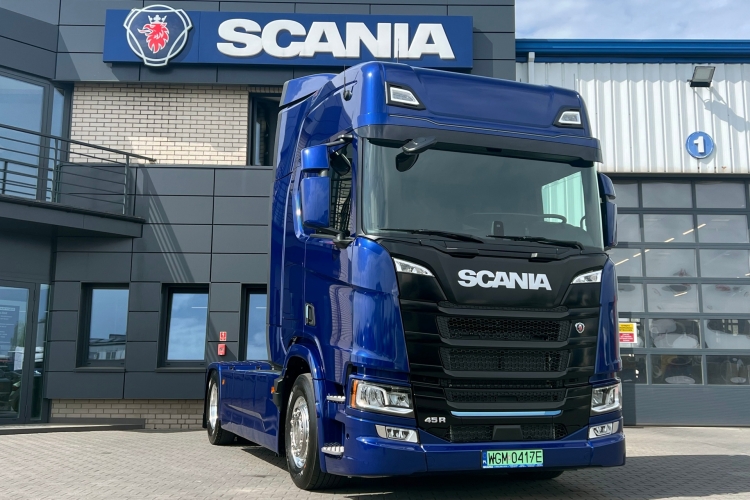Scania and PepsiCo Poland join forces for transport electrification and decarbonization in Poland
- Oprac. M.K.
- Kategoria: English zone
The truck manufacturer and one of the leaders in the snacks and beverages market are establishing a strategic partnership aimed at reducing CO2 emissions in transport. The first stage of the project involves incorporating a Scania electric tractor unit into PepsiCo's fleet, which will replace a combustion vehicle in daily trips between the company's facilities. This is an important phase of the pilot and testing on the road to achieving goals related to fleet energy transformation and pursuit of sustainable development. The initiative aims not only to reduce the carbon footprint but also to contribute to the broader implementation of electromobility-based solutions in the logistics industry.
In Poland, nearly 70 percent of companies do not have zero-emission vehicles in their fleets, and only 43 percent plan to implement them in the near future.[1] This is a serious challenge in the context of global efforts to reduce greenhouse gas emissions. In response to this problem, Scania and PepsiCo are collaborating to gradually electrify the transport fleet. The first stage of the project assumes that Scania's electric vehicle will replace a traditional truck in internal transport, serving the route between PepsiCo's plant in Tomaszów Mazowiecki and the company's central warehouse in Mszczonów. The route operator and vehicle owner is P.H.U.T "Trans-PLUS" Robert Słomka, Izabela Słomka, a transport provider for PepsiCo. The vehicle was prepared at Scan-Partner Sp. z o.o. service center in Łódź, an authorized Scania dealer responsible for executing the contract.
In today's world, concern for the natural environment is becoming one of the key elements of corporate development strategies that aim for sustainable growth. As part of implementing the PepsiCo Positive strategy, we are taking a number of actions aimed at reducing the impact of our operations on the planet. By partnering with Scania Polska, we are not only electrifying our fleet and reducing CO2 emissions, but also improving the qualifications and awareness of our employees regarding energy transformation in logistics.
- comments Wojciech Osiadacz, Transport and Fleet Manager at PepsiCo Poland.
The collaboration between both companies represents a significant step toward developing transport independent of fossil fuels. The electric solutions offered by Scania Polska will play a key role in this process, supporting the transport sector in transitioning to more sustainable mobility.
Transport Independent of Fossil Fuels
At Scania, we believe that pursuing sustainable mobility requires collaboration at many levels. When companies like PepsiCo support their transport partners in reducing emissions, they become driving forces for change across the entire industry. Thanks to this approach, our partners can more quickly develop and implement modern solutions in the field of e-mobility, supporting the transformation of the transport sector.
- comments Paweł Kurzawa, Director of Electromobility at Scania Polska S.A.
Pilot projects, like the one by PepsiCo Poland and Scania Poland, allow for the assessment of performance, range, and impact on daily logistics of electric heavy-duty vehicles in real operational conditions. Through such activities, charging infrastructure can be better adapted, routes optimized, and e-mobility technologies improved. Pilot projects are also an excellent opportunity to verify the results of range analyses, energy consumption, and charging infrastructure efficiency based on digital models of transport tasks. They also enable the identification of potential barriers and challenges, which is necessary for the effective implementation of electrified solutions on a large scale.
Partnership between manufacturers, companies using transport, and transport providers is essential for the energy transformation in the logistics industry to proceed smoothly. Electric truck pilots are a step toward sustainable transport that benefits both business and the environment. Through collaboration among key market players, it is possible to achieve ambitious carbon dioxide emission reduction goals and build a more efficient and environmentally friendly delivery system.
[1] Report "Sustainable Development and Fleet Decarbonization. The State of the Polish Fleet Market," Keralla Research Institute, 2024
Source: Scania Polska S.A.

